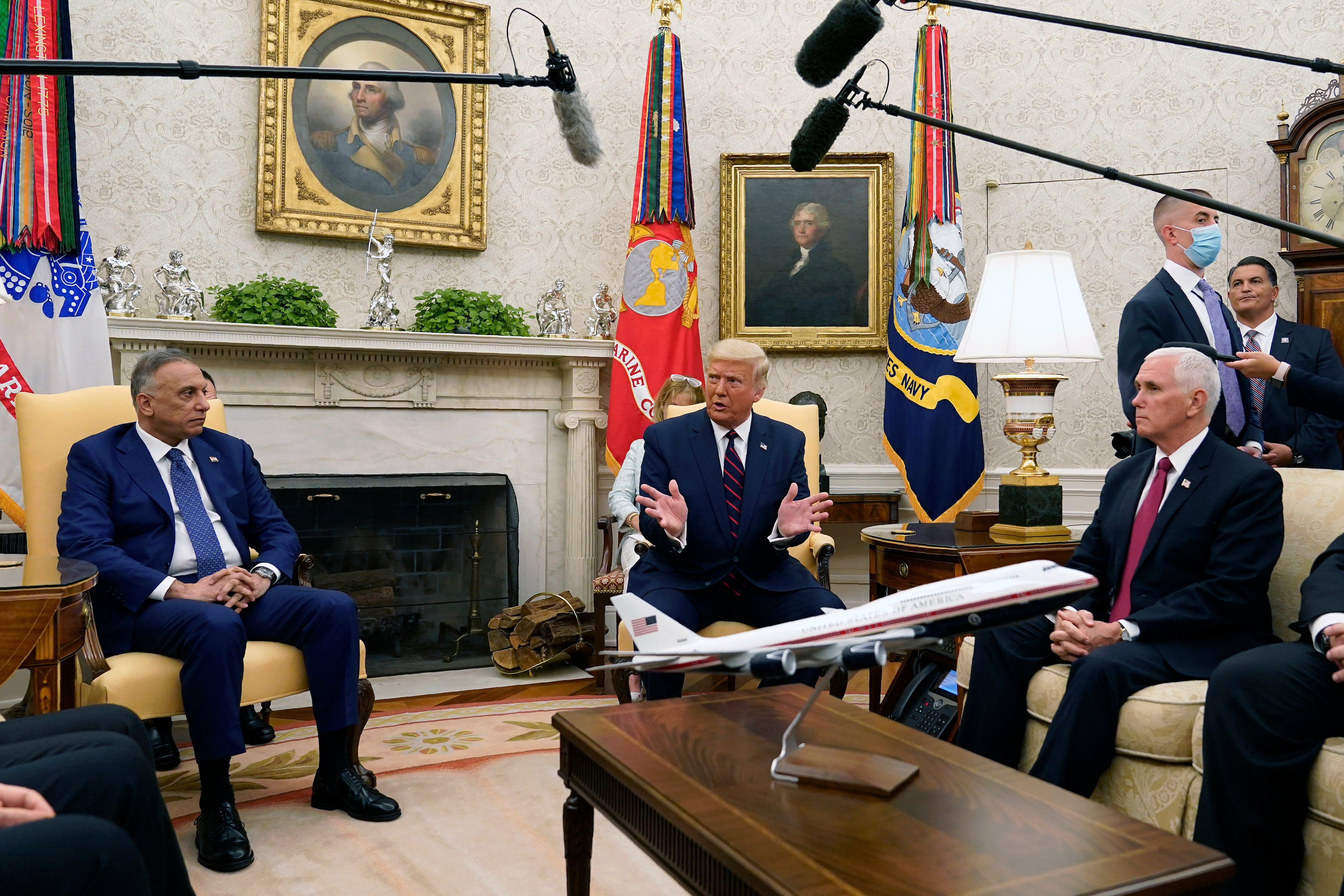President Donald Trump released a 50-point second-term agenda on Sunday which vows to maintain American military might and “wipe out” terrorist groups overseas but also to stop the country’s involvement in “endless wars.”
The move comes as Trump prepares to accept his party’s nomination at the Republican convention this week for four more years as commander in chief. Democratic Party leaders formally nominated former Vice President Joe Biden at their event last week.
Typically, officials from both parties use the convention to adopt a new platform of policy priorities and goals to help guide their efforts for the next five years. However, Republican Party officials this cycle opted not to adopt a new platform, instead reiterating their support for the 2016 document passed just before Trump’s election.
RELATED

GOP leaders blamed restrictions placed on officials discussing and finalizing the document because of the ongoing coronavirus pandemic for the move, but also said that if they had passed a new platform, they “would have undoubtedly unanimously agreed to reassert the Party’s strong support for President Donald Trump and his administration.”
The 2016 platform voiced support for boosting military funding, promised to expand health care opposition for veterans, and strongly opposed “social experimentation” in the ranks on issues like transgender enlistment and the expansion of combat roles for women.
It also calls for increased accountability among Veterans Affairs staff, a key campaign issue for Trump in 2016, but also one that the president has suggested in recent years is moot because of new legislation passed by Congress to more easily fire employees at the department.
The updated 50-point list released by the president on Sunday appears to take the place of the traditional platform plan, vowing to create 10 million new jobs in 10 months, pass congressional term limits, and “return to normal in 2021.”
It vows to “protect our veterans and provide world-class healthcare and services.” Critics have charged Trump with pushing too many resources and responsibilities for veterans care to private-sector medical centers in recent years, instead of investing in the Department of Veterans Affairs.
Trump’s new list also includes plans to “launch Space Force,” the new independent military branch established last December. Trump also unveiled plans to establish a “permanent manned presence on the Moon and send the first manned mission to Mars” as part of that point, although it’s unclear how the military force would be involved in those efforts.
Reiterating a key theme of his 2016 campaign and his first term in office, Trump also promised he will “get allies to pay their fair share” in a second term and to “maintain and expand America’s unrivaled military strength.”
Republican leaders have blasted former President Barack Obama and Biden for what they called years of military neglect, and Trump has said his administration has “rebuilt the military” through a series of budget increases in recent years.
Trump’s second-term promises also include improving military cybersecurity and missile defense systems, and an unspecified plan to “wipe out global terrorists who threaten to harm Americans.”
RELATED

But the commander in chief also repeated his pledge to “stop endless wars and bring our troops home,” an issue that has proved elusive in his first four years in office.
Trump in recent weeks has suggested he may remove all American troops from the Middle East and cut forces in Afghanistan to less than 5,000 in an effort to finally end American involvement in those regions.
But despite similar pledges in 2016 to remove those military forces, the number of troops in Afghanistan swelled by several thousand before recently returning to levels near where they were at the start of 2017, and the number of troops in Iraq has remained stalled around 5,000.
Trump is expected to expand upon his second-term list of promises during convention events throughout the week.
Leo covers Congress, Veterans Affairs and the White House for Military Times. He has covered Washington, D.C. since 2004, focusing on military personnel and veterans policies. His work has earned numerous honors, including a 2009 Polk award, a 2010 National Headliner Award, the IAVA Leadership in Journalism award and the VFW News Media award.









